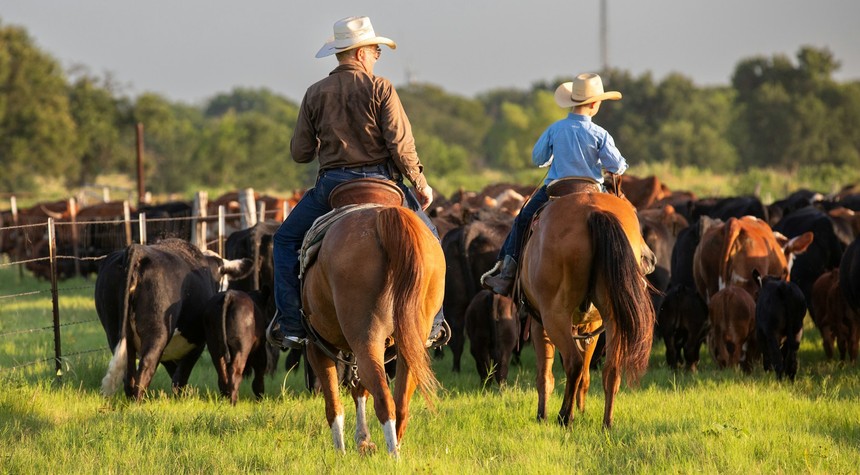In a move that directly challenges his “America First” platform, President Trump announced plans Sunday evening to import Argentine beef in an attempt to artificially lower U.S. consumer prices. This intervention comes at a time when American ranchers are finally experiencing their first profitable period in years, highlighting the administration’s puzzling departure from free-market principles.
The facts paint a clear picture: U.S. beef consumption has reached a 40-year high, returning to 1980s levels, creating a natural market opportunity for domestic producers. This surge in demand has generated legitimate profits for American ranchers who have weathered decades of challenging market conditions and consolidation that has eliminated nearly 700,000 cow-calf operations since 1973.
The administration’s logic appears fundamentally flawed. Rather than addressing the root cause of price concerns – namely the concentrated power of meat-packing conglomerates – Trump’s solution essentially punishes successful American producers by flooding the market with foreign products. This represents a curious deviation from conservative economic principles that typically favor market-driven solutions over government intervention.
The timing of this decision is particularly problematic. Current market strength stems from multiple factors, including restricted Mexican cattle imports due to disease concerns and robust consumer demand. These conditions have created a rare window of profitability for American ranchers who have historically operated on razor-thin margins.
Sixth-generation North Dakota rancher Chelsey Erdmann articulates the industry’s reality: “The beef industry goes in waves, and we ride them. The barriers to entry are too great to jump out when it’s low, and jump back in when it’s high.” This practical wisdom underscores why government intervention in functioning markets typically creates more problems than it solves.
Historical precedent suggests government meddling in beef markets leads to negative outcomes. During the Johnson administration in 1964, similar government intervention severely damaged cattle markets, demonstrating how well-intentioned price controls often backfire.
The conservative position here is clear: free markets, not government manipulation, should determine prices. When ranchers finally achieve profitability through legitimate market forces, the federal government should not undermine their success through artificial price suppression via foreign imports.
This situation presents a stark contrast between free-market principles and government intervention. While lower consumer prices may seem politically expedient, undermining domestic producers through foreign imports represents a departure from conservative economic principles and the “America First” agenda that resonated with voters.
The administration would better serve both consumers and producers by focusing on breaking up meat-packing monopolies and ensuring truly competitive markets rather than implementing policies that disadvantage American ranchers when they’re finally seeing returns on their multi-generational investments.
Related: Trump Plans Sweeping Tech Export Controls to Counter Chinese Rare Earth Restrictions

